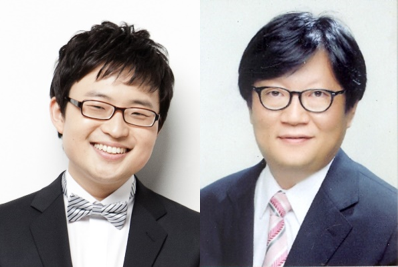- About
- Academics
-
Undergraduate Programs
- Civil and Environmental Engineering
- Architecture and Architectural Engineering
- Mechanical Engineering
- Industrial Engineering
- Energy Resources Engineering
- Nuclear Engineering
- Materials Science and Engineering
- Electrical and Computer Engineering
- Naval Architecture and Ocean Engineering
- Computer Science and Engineering
- Aerospace Engineering
- Chemical and Biological Engineering
-
Graduate Programs
- Civil and Environmental Engineering
- Architecture and Architectural Engineering
- Mechanical Engineering
- Industrial Engineering
- Energy Systems Engineering
- Materials Science and Engineering
- Electrical and Computer Engineering
- Naval Architecture and Ocean Engineering
- Computer Science and Engineering
- Chemical and Biological Engineering
- Aerospace Engineering
- Interdisciplinary Program in Technology, Management, Economics and Policy
- Interdisciplinary Program in Urban Design
- Interdisciplinary Program in Bioengineering
- Interdisciplinary Program in Artificial Intelligence
- Interdisciplinary Program in Intelligent Space and Aerospace Systems
- Chemical Convergence for Energy and Environment Major
- Multiscale Mechanics Design Major
- Hybrid Materials Major
- Double Major Program
- Open Programs
-
Undergraduate Programs
- Research
- Campus Life
- Communication
- Prospective Students
- International Office
News
The Joint Research Team of Seoul National University-Postech Develops High-Efficiency Microbial Cell Factory Source Technology for Production of Carbon Neutral Biochemical Products Using Artificial Evolution Technology
-
Uploaded by
관리자
-
Upload Date
2021.09.03
-
Views
829
The Joint Research Team of Seoul National University-Postech Develops
High-Efficiency Microbial Cell Factory Source Technology for Production of Carbon Neutral Biochemical Products Using Artificial Evolution Technology
High-Efficiency Microbial Cell Factory Source Technology for Production of Carbon Neutral Biochemical Products Using Artificial Evolution Technology

▲(From left) Professor Sang Woo Seo of Seoul National University’s Department of Chemical and Biological Engineering, Professor Gyoo Yeol Jung of POSTECH’s Department of Chemical Engineering
Seoul National University's College of Engineering (Dean Kookheon Char) announced on August 25 that a joint research team of Professor Sang Woo Seo of the Department of Chemical and Biological Engineering and Professor Gyoo Yeol Jung of the Department of Chemical Engineering at Pohang University of Science and Technology has developed a carbon-neutral high-value biochemical production cell factory optimization technology using biosensor-based artificial evolution technology.
Unlike complex chemical processes, industrial microorganisms such as E. coli and yeast can produce high-value compounds simply and quickly by just being provided with raw materials, increasing their utilization as a "cell factory." In order to utilize microorganisms as "cell factories," it is necessary to establish a biochemical reaction path that can produce chemical products within microorganisms, just as factories build production lines. This requires the introduction of animal and plant-derived foreign genes while optimizing the activity of biochemical reactions across microbial cells, which is the biggest obstacle to efficient cell factory development.
In response, through a joint research, Professor Sang Woo Seo's research team (Ph.D student Yong Hee Han) of Seoul National University and Professor Gyoo Yeol Jung's research team (Dr. Joo Yeon Seok) of POSTECH developed an artificial evolution technology that enables microorganisms to self-regulate carbon flow by using a biosensor, a type of synthetic biology tool and through this, it was found that it was possible to optimize the growth of microorganisms and the production of chemical products at the same time very efficiently.
The research team developed a metabolic pathway to produce 3-hydroxypropionic acid (3-HP), which can be used as a raw material for various chemical products, and a 3-HP biosensor that expresses antibiotic-resistant genes depending on the concentration of 3-HP molecules in the cell. Since then, microorganisms with increased 3-HP productivity were developed through an adaptive laboratory evolution process, which only selects microorganisms that survive in cultures with gradually increasing concentrations of antibiotics.
By analyzing the genetic information of the adaptively evolved microorganisms, the research team found mutations in two genes (cyaA and crp) that play a key role in carbon flow regulation. In addition, by producing microorganisms by incorporating the two mutant genes, the world's highest production yield of 3-HP, reaching 93% of the theoretical maximum, was achieved.
"If we use artificial evolution technology using biosensors that target specific metabolites, we can optimize the expression of genes that are essential to the production of chemical products in cell factories, but which are difficult to understand through human judgment. Through this, it can be used for the development of various microbial cell factories that optimize the distribution of carbon sources used for producing products and cell growth, and it will be used for the commercialization of carbon-neutral biochemical products," said the research team.
The results of this study were published online on August 25, in ‘Cell Reports’, a sister journal of the world’s most prestigious scientific journal “Cell”. The achievements of this research were carried out through support from the National Research Foundation of Korea's C1 Gas Refinery Project, the Global Laboratory Project, and the Korea Bio Grand Challenge project.
[Information About the Research Paper and the Authors]
Title of the Research Paper: Synthetic biosensor accelerates evolution by rewiring carbon metabolism toward specific metabolite
Publisher: Cell Reports (2021)
First Authors: Yong Hee Han (Seoul National University), Joo Yeon Seok (POSTECH)
Corresponding Authors: Sang Woo Seo (Seoul National University), Gyoo Yeol Jung (POSTECH)
https://www.cell.com/cell-reports/fulltext/S2211-1247(21)01023-8